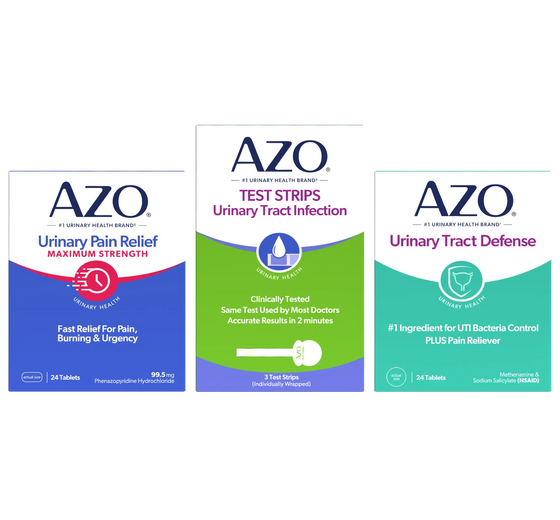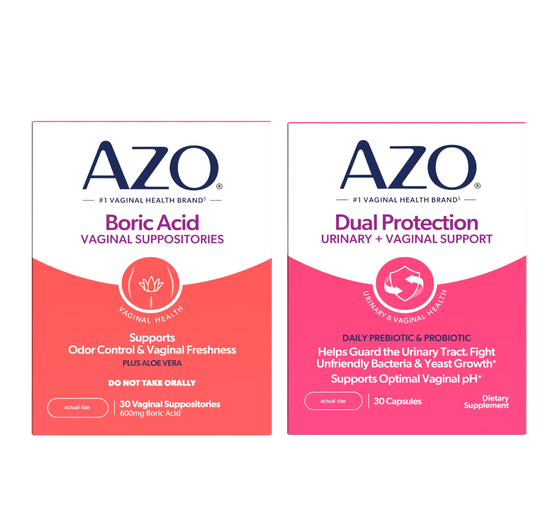
When a urinary tract infection (UTI) barges into your life, it's more than just an annoyance—it's a real pain that demands attention right away. Understanding what a UTI is, recognizing its symptoms, finding ways to ease the discomfort, and knowing how to treat it are all key to getting rid of this pesky problem.
What Is A UTI?
A UTI is an infection anywhere in your urinary system, but it usually hits the bladder and urethra the hardest.
What are the symptoms of a UTI?
A UTI can make peeing hurt or burn. You might feel like you always have to go, even if you just did. Your pee might look cloudy, smell strong, or have blood in it. You could get a fever, lower back pain, or cramps. If it gets worse, you might start sweating at night, feeling cold, or shaking. Your fever might go up, and your back pain could move up to where your kidneys are or to the side. You might feel flushed, tired, nauseous, and just generally awful. In short, a UTI is a major downer.
What can you do to relieve the symptoms of a UTI?
Most UTI symptoms get better with antibiotics. If you suspect you have one, you can use an at-home UTI test and then call your doctor. It's especially important to talk to a doctor quickly if you're pregnant, have diabetes, or often get kidney stones because UTIs can make these conditions worse.
In the meantime, there's plenty you can do to make your UTI less miserable while you wait, such as heat therapy, adjusting diet and staying hydrated.
- Heat Therapy: A heating pad can help ease cramps and lower back pain. Just keep the heat low and use it for short periods to avoid burns. The warmth can really help soothe your belly.
- Diet Adjustments: Some foods and drinks can irritate your bladder and make your UTI hang around longer. Try cutting out caffeine, alcohol, fizzy drinks, and nicotine—they're all bladder irritants.
- Stay Hydrated: Plus, caffeine is a stimulant and a diuretic, which means it makes you pee more and could dehydrate you. Drinking water is the best way to flush out the bacteria causing your UTI, even if it means more trips to the bathroom.
- Maintain Bathroom Hygiene: Prevent bacteria spread by wiping from front to back post-bathroom use, and urinate before and after sex to clear bacteria from the urethra.
- Choose Loose Clothing: Avoid tight clothes as they trap moisture, fostering bacterial growth. Prefer airy, cotton outfits, particularly for underwear, to stay dry and minimize bacterial risks.
How Long Does it Take for a UTI to Go Away?
The length of a UTI can vary, but with the right antibiotics, symptoms usually start to improve in a few days. It's important to finish all your medication to make sure the infection is totally gone. Otherwise, it might come back or cause more problems.
Can a UTI Go Away on Its Own?
Some mild UTIs might get better without treatment, but it's risky to wait and see. Untreated UTIs can turn into serious infections, even kidney infections, with long-term effects. It's best to see a doctor and get proper treatment to make sure you're fully recovered.
See, Here’s The Deal……
Think of a UTI like an unwelcome house guest. They're a hassle, won't leave on their own, and can mess up your routine. But with some effort, like taking medication, avoiding certain things, and staying hydrated, you can show them the door sooner rather than later.








